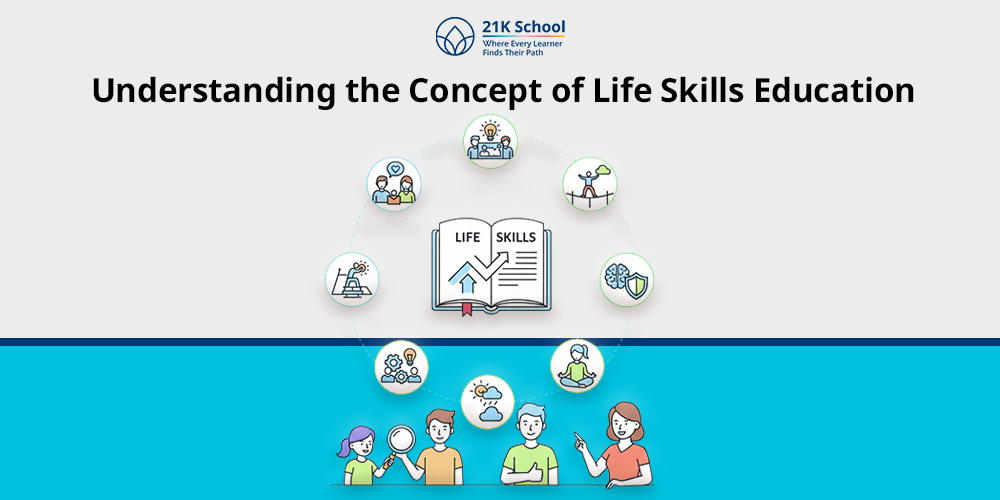
Have you ever wondered why life skills education is becoming a need?
Life skills learning will provide students with the required skills in their daily lives. These are communication skills, problem-solving skills, empathy, and self-awareness skills, among others.
These skills play a central role in the day-to-day life of students and their future success, and so mastery of these skills comes in handy in the’ academics of students and in their future employment.
It deals with the development of cognitive, emotional, and social competencies, and the vital competencies in life are critical thinking, communication, problem-solving, and emotional coping.
The life skills education helps people to manage the life requirements of living in the world, making good decisions, adjusting to those situations and establishing healthy relationships.
Table of Contents
What is Life Skills Education?
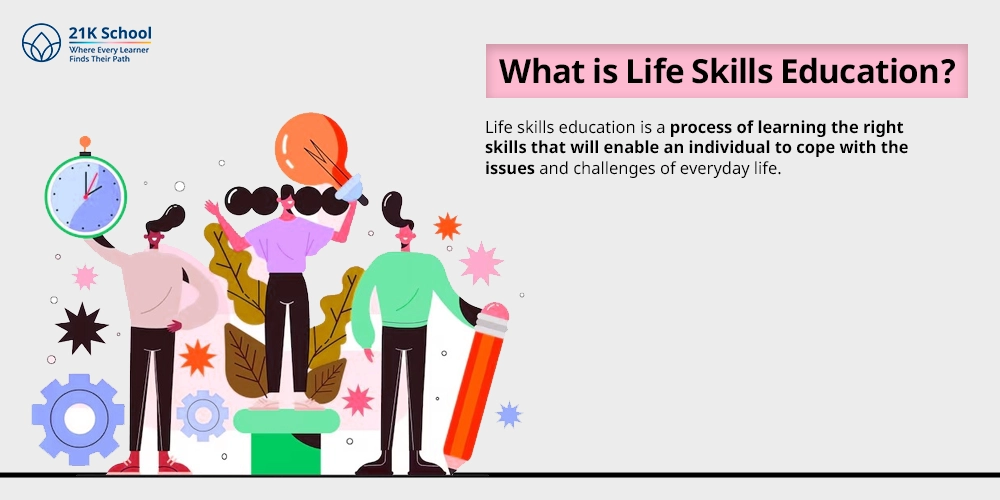
Life skills education is a process of learning the right skills that will enable an individual to cope with the issues and challenges of everyday life. It is rather concerned with practical, emotive and social skills which are superimposed on top of the academic learning and which, in fact, are geared towards enabling people to lead healthy, responsible and satisfying lives.
The key goals of life skills education are to help learners develop self-awareness, confidence, decision-making, control of emotions, and interpersonal communication skills.
Through the integration of different life skills in the educational process, schools and communities are expected to enhance children’s mental health, minimise risky behaviours and equip individuals with personal, social and work success.
In India, life skills education is currently on a major drive, especially after the National Education Policy (NEP) 2020 has advocated the need to develop the child holistically and with skills that are relevant in the 21st century.
Educational boards such as CBSE and ICSE have incorporated aspects of life skills at the national level in the curriculum of health and physical education. Some state governments have also initiated new programmes:
- Happiness Curriculum in Delhi: It was introduced in 2018 in nursery and grades 8 through 8, centred on mindfulness, mental well-being, and emotional well-being.
- The Project Sampoorna: An integrated subject-based life skills programme at Jharkhand.
- The initiatives in Uttarakhand: Child development and joy in learning Programmes such as Baal Sakha and Anandam.
Types of Life Skills Education
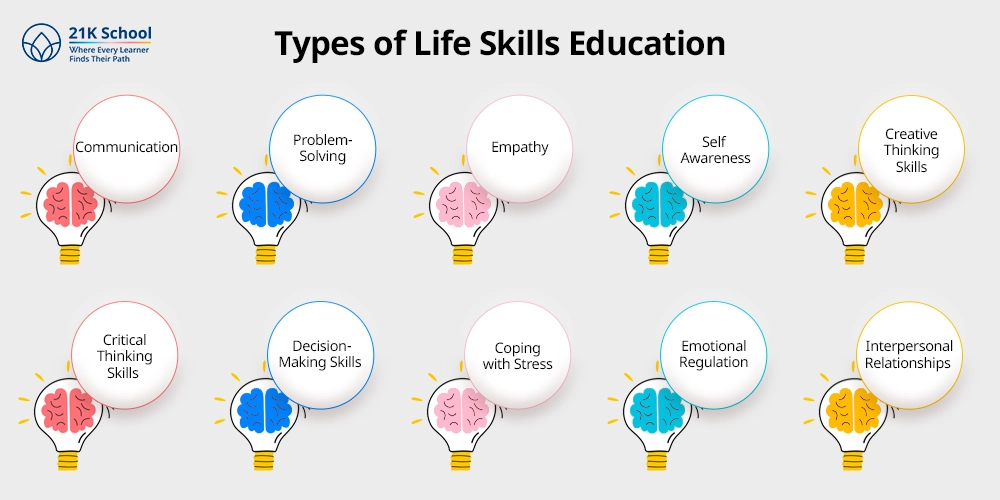
Life skills education enables one to cope well with daily life difficulties: in personal, social and professional aspects.
There are different types of life skills, namely, emotional intelligence skills, problem-solving skills and so on. These are but a few examples of life skills lessons for students.
1. Communication
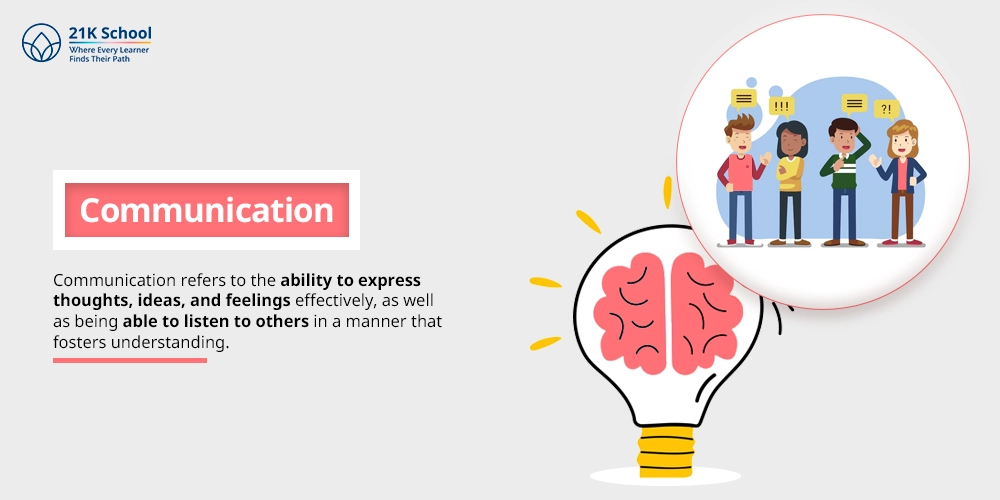
Communication refers to the ability to express thoughts, ideas, and feelings effectively, as well as being able to listen to others in a manner that fosters understanding. It encompasses the verbal and non-verbal tone of voice, gestures, and expressions.
Communication can also be beneficial in allowing individuals to establish a good relationship with others, such as those on a team, and those who fail to communicate effectively. It is also significant in conflict resolution and leadership.
2. Problem-Solving
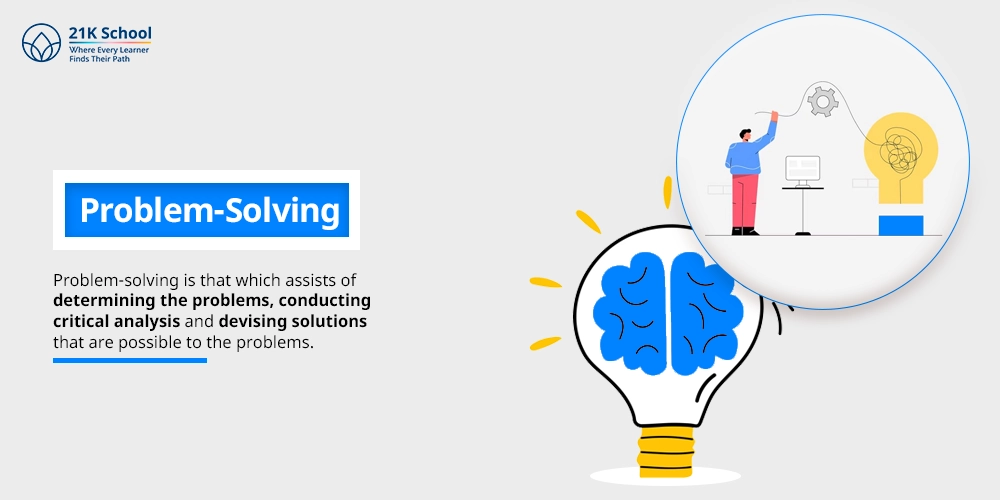
Problem-solving is that which assists of determining the problems, conducting critical analysis and devising solutions that are possible to the problems. It helps an individual to make rational and evidence-based decisions and not emotional ones.
The given ability can help to be cool during a stressful situation, evaluate the possibilities available, and choose the direction of the most reasonable course of action. It makes one assertive and independent in the manner he or she tackles matters in life.
3. Empathy
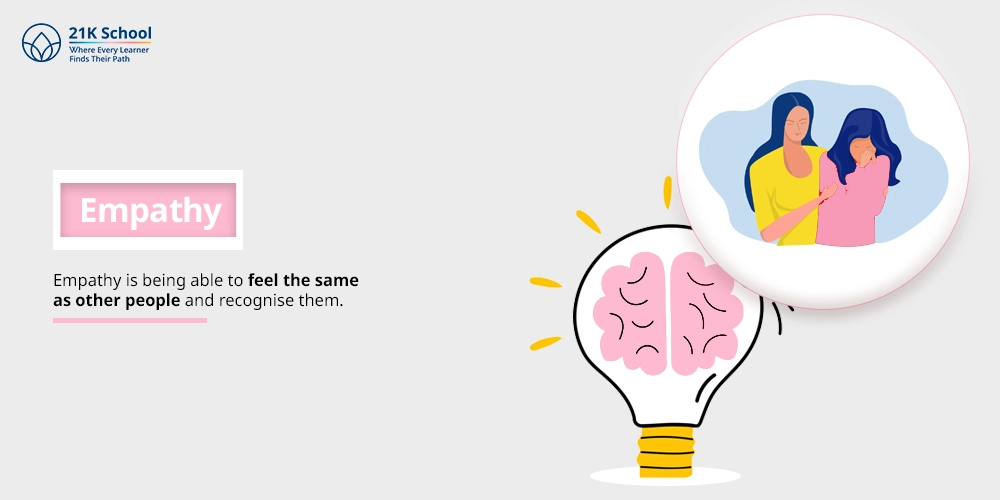
Empathy is being able to feel the same as other people and recognise them. It will make them see the situation through the eyes of another person and act in a human and empathic manner.
Empathy is also useful in establishing better relationships, teamwork and conflict management. It will help to raise awareness regarding diversity and make people more effective in working as a team.
4. Self Awareness
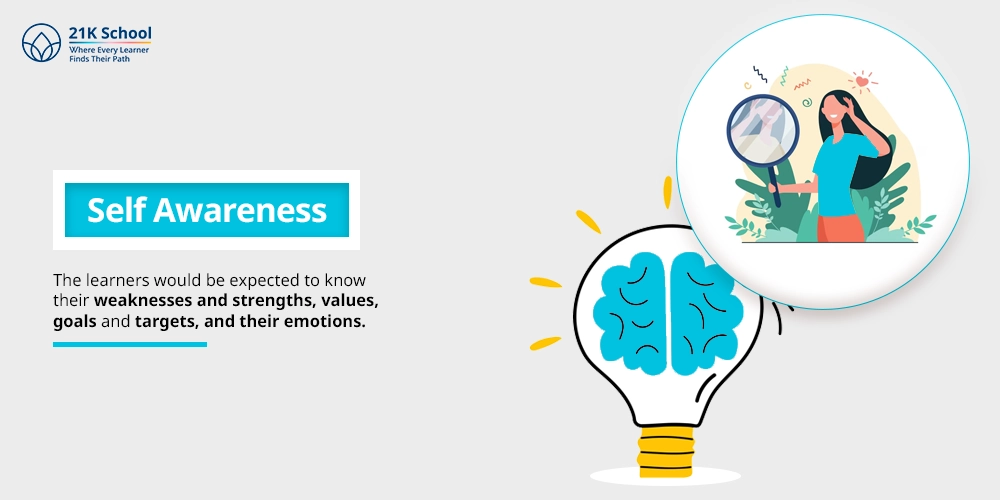
The learners would be expected to know their weaknesses and strengths, values, goals and targets, and their emotions. It helps an individual to know the effects of their actions as they affect other individuals and how they can transform themselves.
Confidence, emotional intelligence and motivation are the outcomes of self-awareness. It also helps human beings to choose better and eliminate stress.
5. Creative Thinking Skills
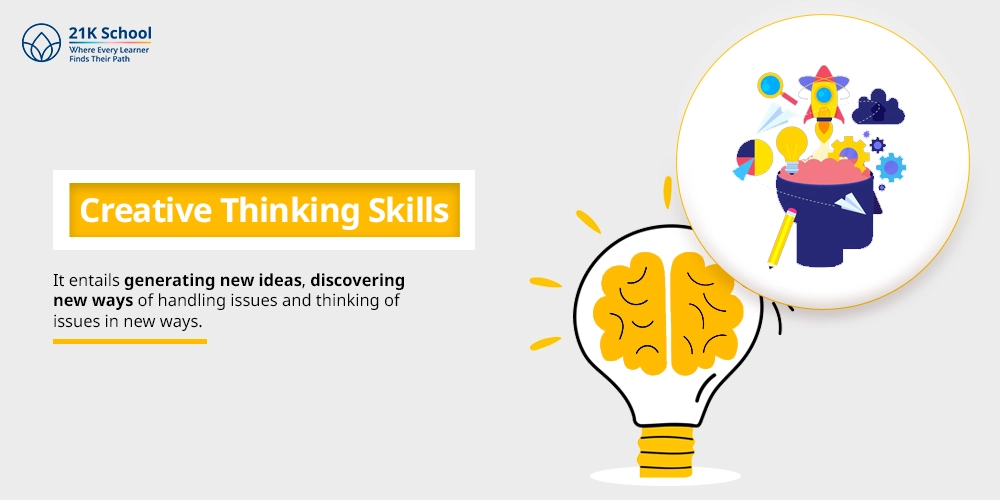
The thinking of a new and imaginative way can be defined as creative thinking skills. It entails generating new ideas, discovering new ways of handling issues and thinking of issues in new ways.
Creative thinkers are freer, investigative risk-taking. It is a skill that can be applied in any aspect of life in school as well as in business progress.
6. Critical Thinking Skills
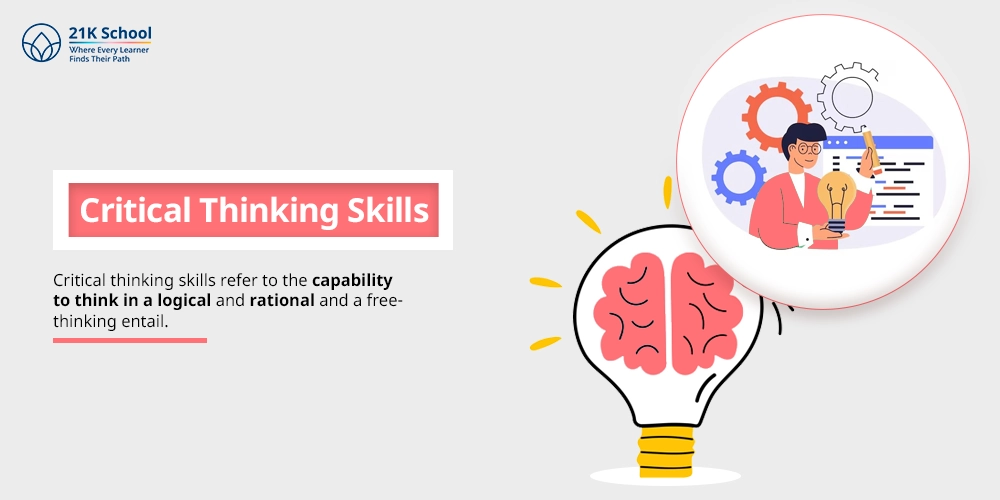
Critical thinking skills refer to the capability to think in a logical and rational and a free-thinking entail. It is a process that is linked with the critical analysis of information.
This skill will leave people sceptical and doubting assumptions and bias, and evaluate facts rather than trust appearances. Problem-solving is done through critical thinking to allow one to make a wise decision and avoid manipulation, and reflect on a challenging question.
Critical thinking skills are the ability to think logically and rationally and in an independent manner. It is a process, which is associated with the critical analysis of information.
This ability will make people critical and questioning of assumptions and prejudice and assess evidence instead of believing in appearances. Critical thinking is applied to problem-solving to enable one to make wise decisions and escape manipulation, and contemplate a difficult issue.
7. Decision-Making Skills
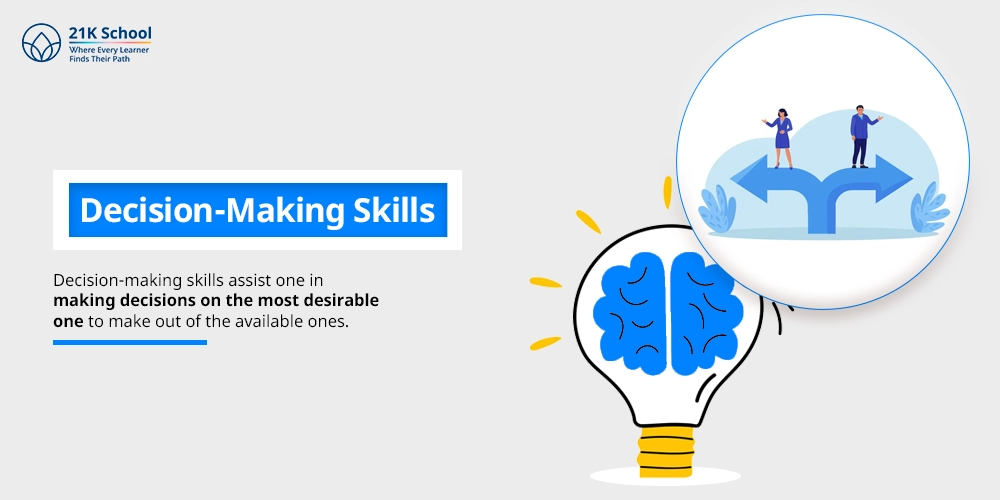
Decision-making skills assist one in making decisions on the most desirable one to make out of the available ones. Determining the problem process, searching the information, comparing the advantages and disadvantages, making forecasts, and the decision-making process are all made on merits and demerits.
It is one of the skills that can be trained, and people would be accountable for their deeds, as well as they can also learn according to their experiences.
8. Coping with Stress
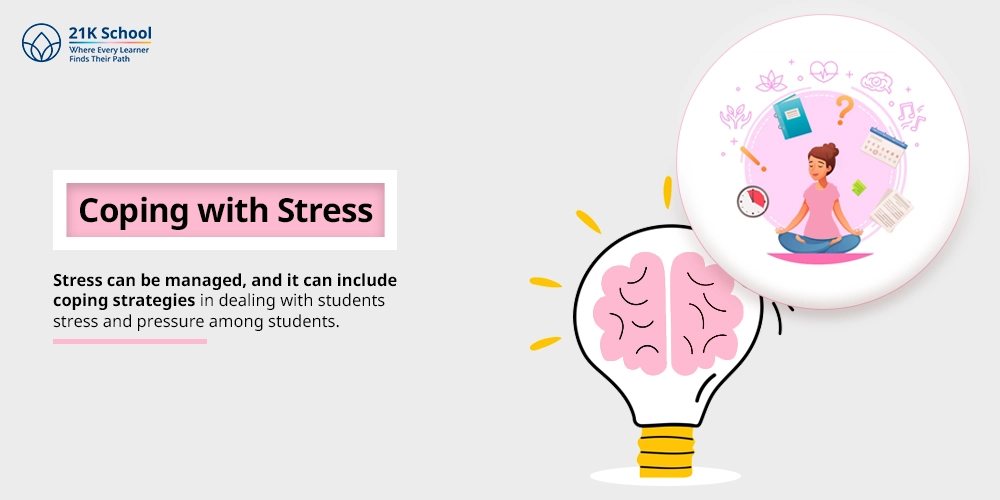
Stress can be managed, and it can include coping strategies in dealing with students stress and pressure among students. We are all stressed at some point, at least at work, during our studies or in a relationship or at least when we are going through our personal tribulations.
Stress coping skills are required to ensure that there is mental, emotional, and physical balance. Some of the stress management techniques required include relaxation, time management, self-care and positive attitude.
9. Emotional Regulation
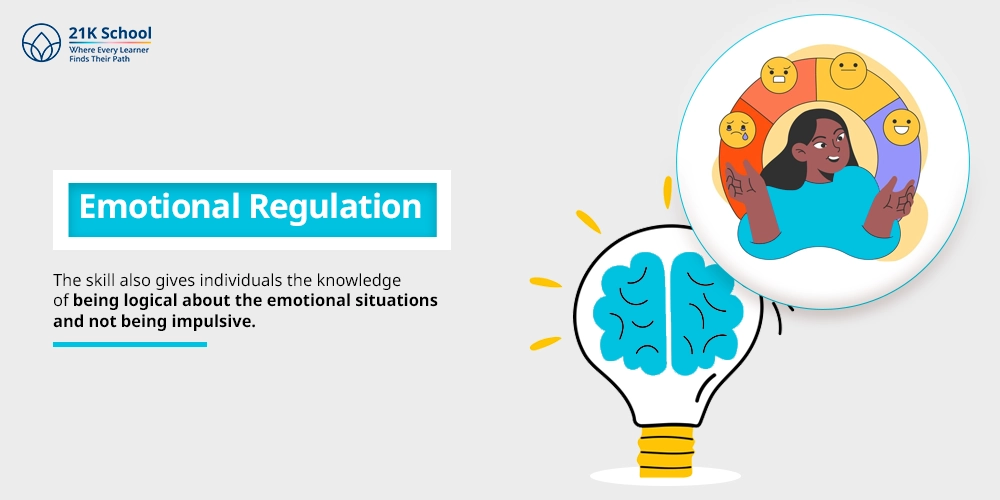
Emotional regulation can be defined as a positive manner of controlling emotions in a controlled manner, and the reason is that it consists of being aware of the emotions, interpreting these emotions and controlling them. The skill also gives individuals the knowledge of being logical about the emotional situations and not being impulsive.
The positive aspect of emotional control is that it may help in keeping the mind positive and minimising stress-related issues, in addition to making the relationship with individuals better.
10. Interpersonal Relationships
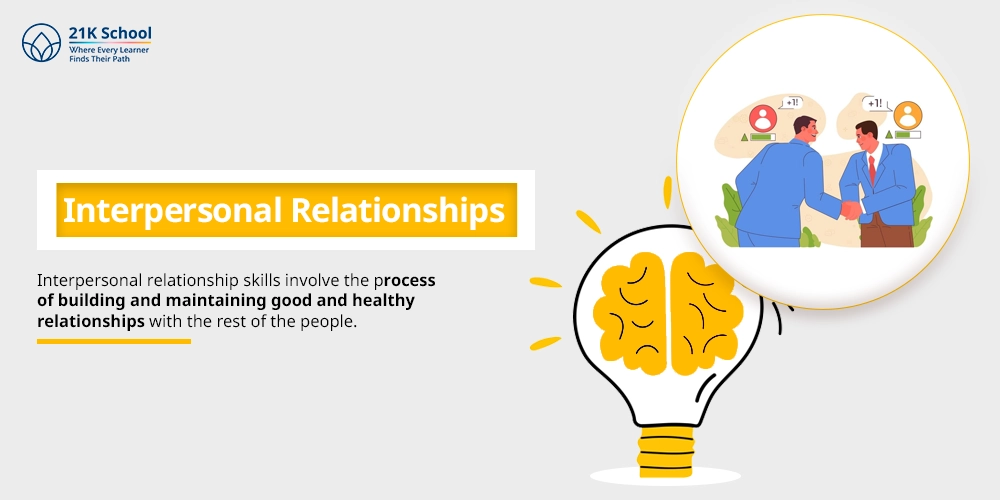
Interpersonal relationship skills involve the process of building and maintaining good and healthy relationships with the rest of the people.
Such skills are empathy, trust and mutual respect. These competencies are demanded in the family, friendships, work and neighbourhoods. Proper relationships will keep people happy, both emotionally and socially.
How to Learn Life Skills Education?
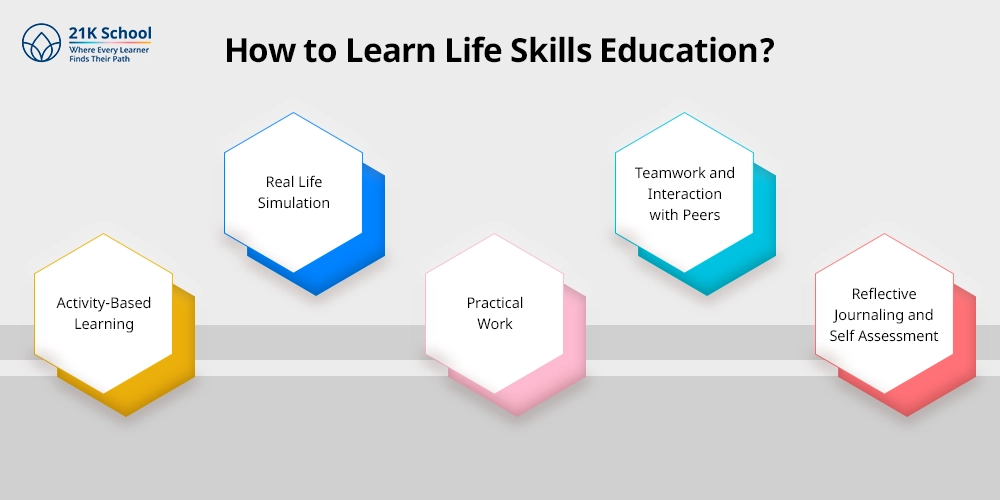
The studies indicate that the developed countries tend to be more systematic in their programmes, and the programmes are regularly evaluated as compared to the developing countries, which might find it difficult to implement and monitor the programmes on a long-term basis.
Life skills development requires various forms that are more experiential and not in the classroom. Such approaches have been based on teacher training, teacher resources and systematic programme provision. Students can learn life skills in the following ways.
1. Activity-Based Learning
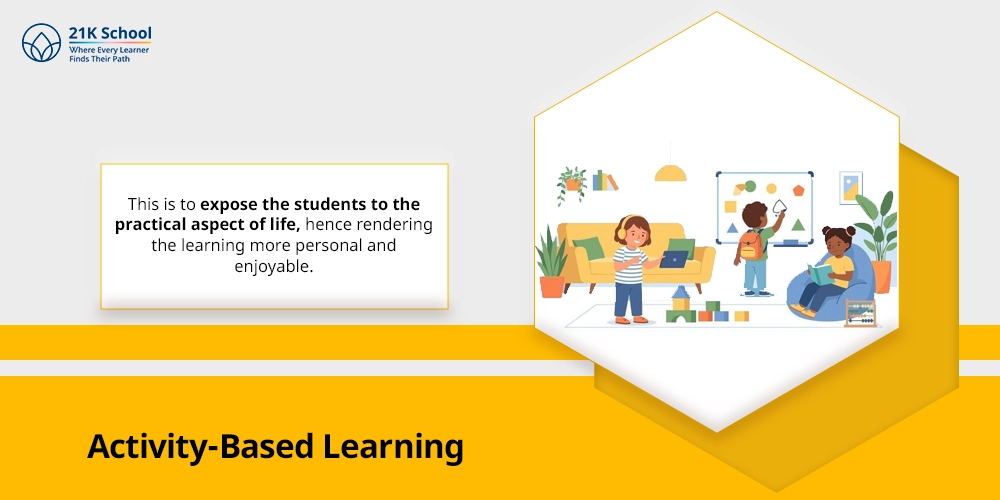
It is possible to teach lifelong learning with the help of activity-based learning. This is to expose the students to the practical aspect of life, hence rendering the learning more personal and enjoyable.
Interactive learning is interactive in nature, involving interactive games, discussions, role plays and creative work as opposed to passive listening to lectures. This will guarantee that they are inquisitive, dynamic and will stimulate critical thinking, which will make the learners internalise lessons and long-term information.
2. Real Life Simulation
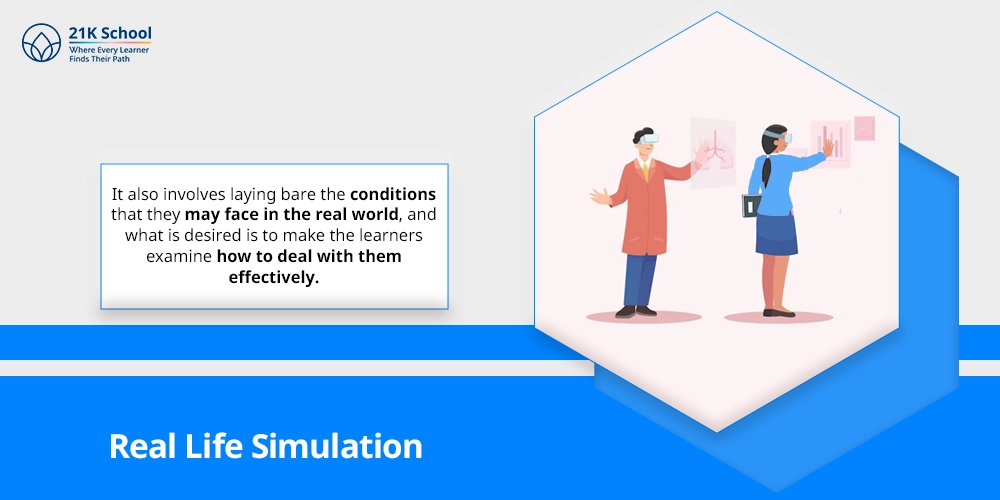
The other effective way of learning life skills is through life simulation. It also involves laying bare the conditions that they may face in the real world, and what is desired is to make the learners examine how to deal with them effectively.
It enables students to be exposed to the real problems in a safe and controlled environment. This would prepare the students to handle life in the future by providing them with greater confidence and responses to similar situations in life of the same calibre.
3. Practical Work
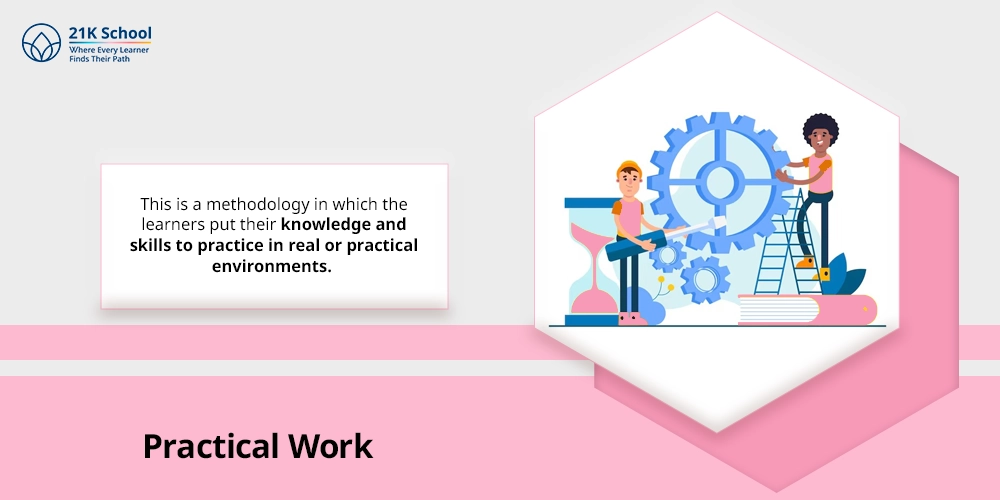
Practical knowledge will enable students to acquire life skills and techniques. This is a methodology in which the learners put their knowledge and skills to practice in real or practical environments.
It fills the gap between theory and practice by making students learn by means of direct experience. Through practical work, they understand the applicability of their studies in real life and become sure of the possibility of applying their skills successfully in various cases.
4. Teamwork and Interaction with Peers
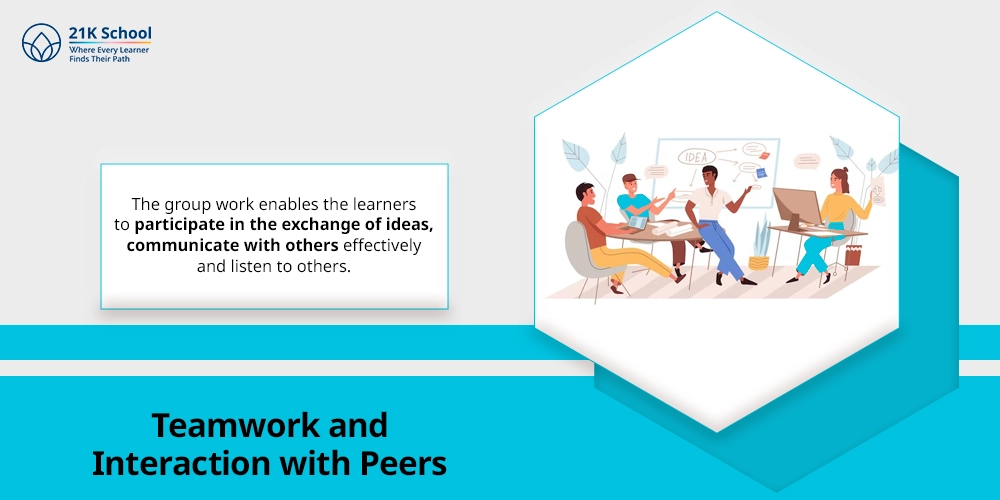
Teamwork and communication with peers are seen to be good tactics for learning life skills. This is concerned with cooperative and interpersonal learning. The group work enables the learners to participate in the exchange of ideas, communicate with others effectively and listen to others.
The practice facilitates good interpersonal relationships and cooperation in addition to the resolution of conflicts. The learners learn to trust, be patient and understanding enough to embrace a mutual work culture by collaborating with other learners to complete a common project.
5. Reflective Journaling and Self Assessment
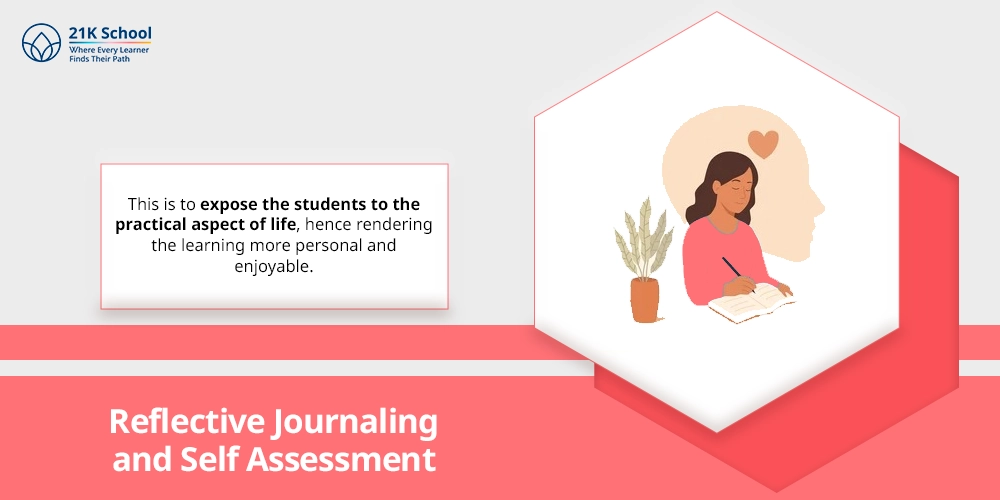
Self-reflection and journaling are beneficial factors of the learning process that will assist learners in revisiting their experience and analysing their progress.
It will produce emotional intelligence, responsibility and a lifelong learning attitude. Through reflective ability, the learners are able to relate what they have experienced in life with the teachings, and this also makes learning a closer and meaningful experience.
Importance of Life Skills Education for Students
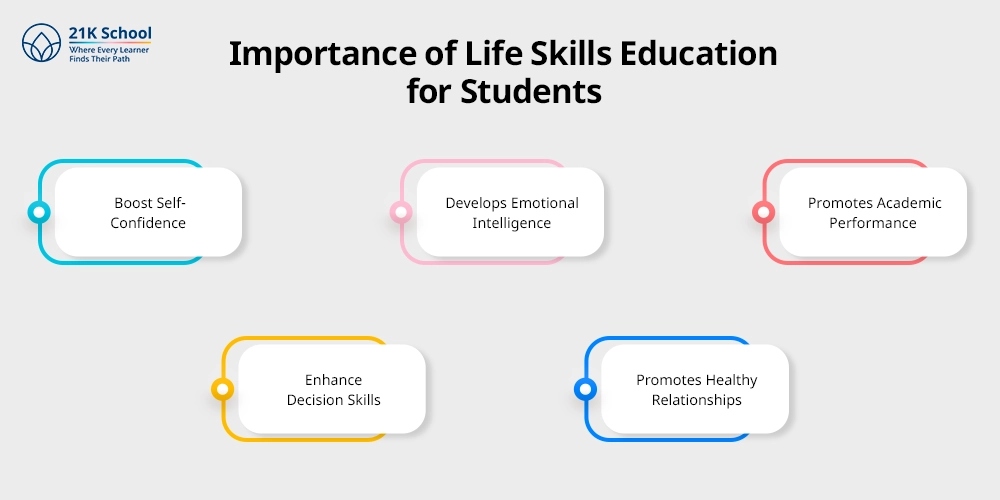
The reason why life skills education is important is that it may offer a holistic approach to the development of the student.
Life skills education will help students to grow in terms of self-confidence, emotional intelligence, decision-making skills, and academic performance. The significance of life skills to the students is the following.
1. Boost Self-Confidence
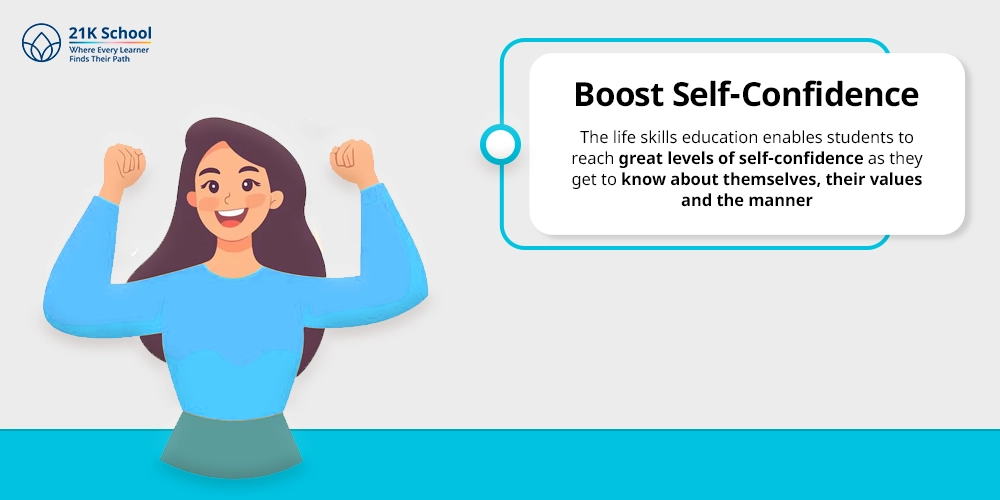
The life skills education enables students to reach great levels of self-confidence as they get to know about themselves, their values and the manner in which they make independent decisions.
As soon as the learners are shown how to cope with whatever arises effectively, they start believing in themselves. The other activities, like teamwork, addressing students before the classroom, and problem-solving, make them step out of their comfort zone.
2. Develops Emotional Intelligence
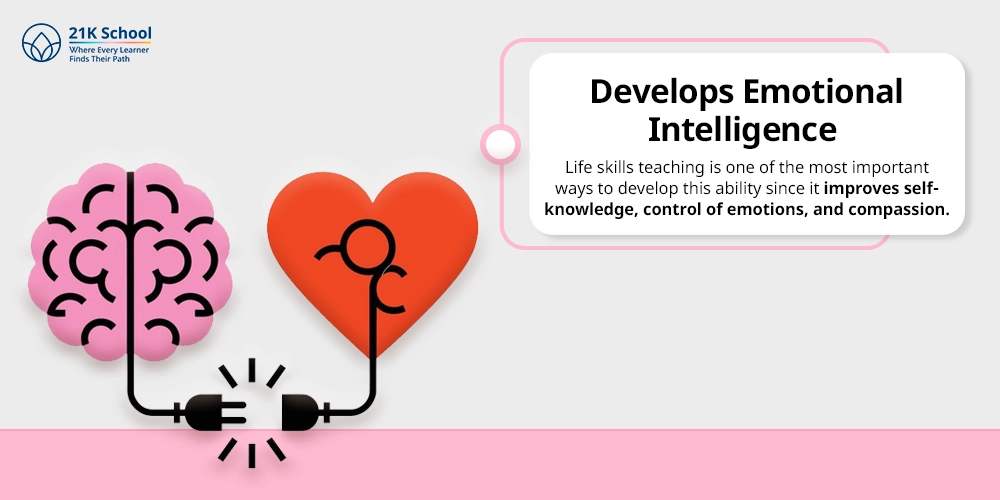
Emotional intelligence refers to the art of being aware, knowing and using feelings both personal and also the feelings of other people. Life skills teaching is one of the most important ways to develop this ability since it improves self-knowledge, control of emotions, and compassion.
It is shown that emotional intelligence can help students fight stress, conflicts and relations in a mature, positive way, which can be linked to the student’s mental health.
3. Promotes Academic Performance
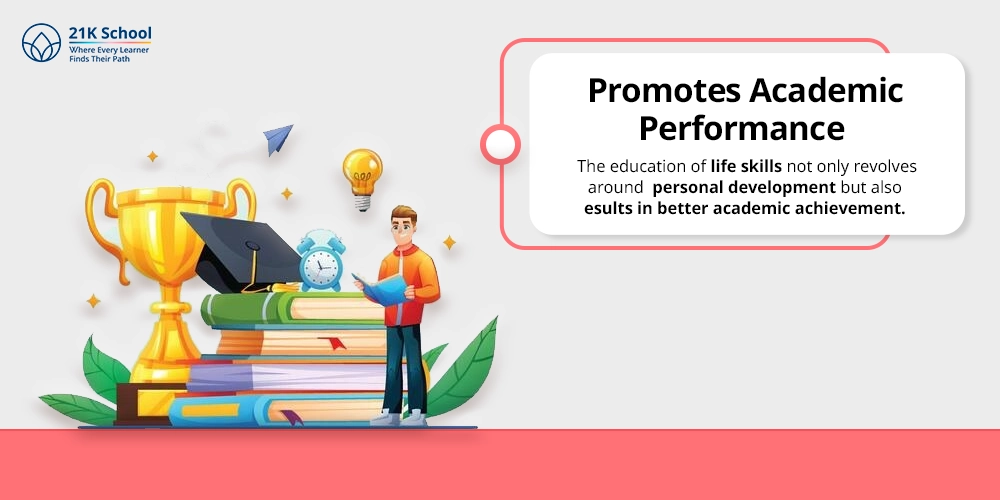
The education of life skills not only revolves around personal development but also results in better academic achievement. Some of these skills are time management, goal setting, concentration and effective communication, which are the direct facilitators of learning.
Moreover, they can overcome failures and learn not to make mistakes, but be motivated with the help of emotional balance and problem-solving techniques.
4. Enhance Decision Skills
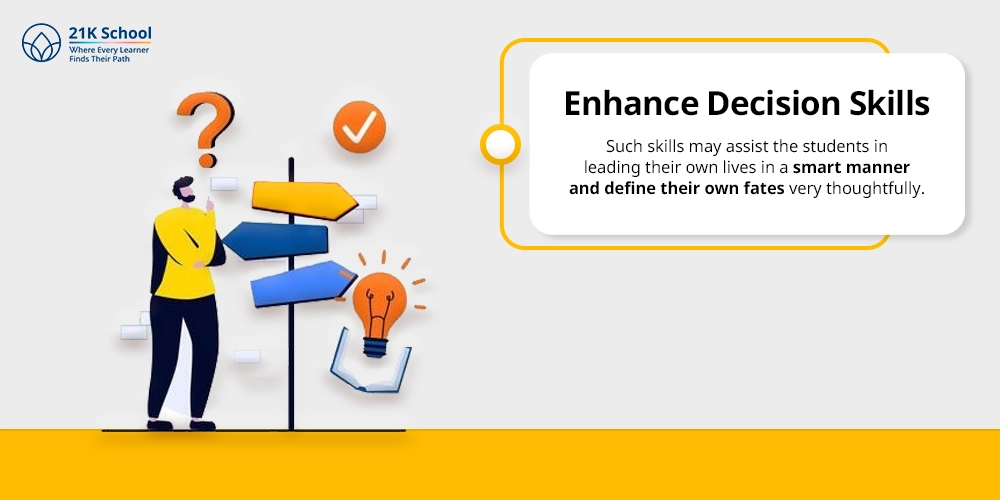
A choice that is right is a very important aspect of the life of any student, and educating on life skills helps in the most fruitful way of making the right choice.
It is a prudent decision maker, and this helps the students to shun impulsive behaviour and uphold responsible behaviour. Such skills may assist the students in leading their own lives in a smart manner and define their own fates very thoughtfully.
5. Promotes Healthy Relationships
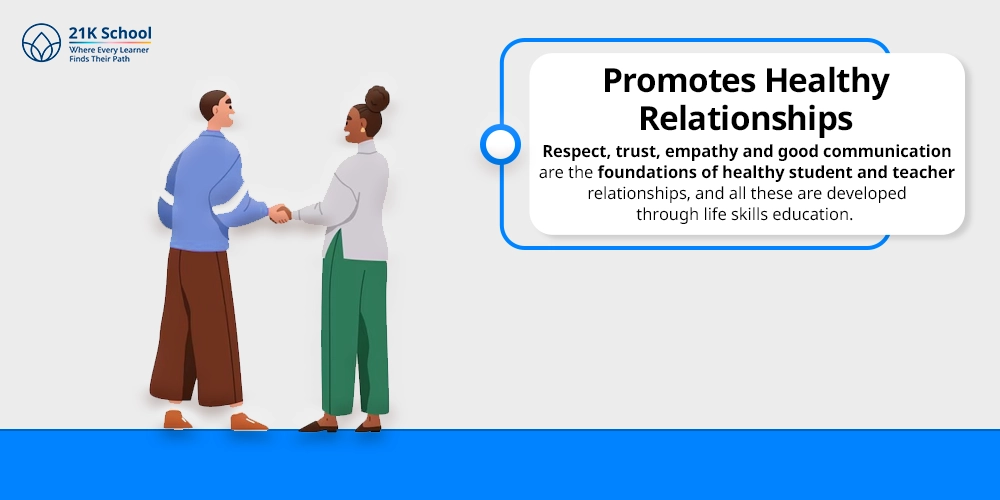
Respect, trust, empathy and good communication are the foundations of healthy student and teacher relationships, and all these are developed through life skills education. Students get to know how to talk to each other and listen to one another as well as solve conflicts in a non-confrontational way.
Good relationships also bring a feeling of belonging and safety, which is critical towards total happiness and well-being.
Concluding Thoughts
Life skills form of education has also infiltrated into the new education reform, which is emphasised in the National Education Policy (NEP) 2020 of India, giving more focus to holistic development than academic excellence in an increasingly globalised world.
Educational institutions and societies that invest in life skills help youth become strong, assertive and socially responsible people. Finally, the inclusion of life skills equips the learners not only to excel in school, but also to excel in their future lives, professional life, relationships, as well as citizens of a global society.
